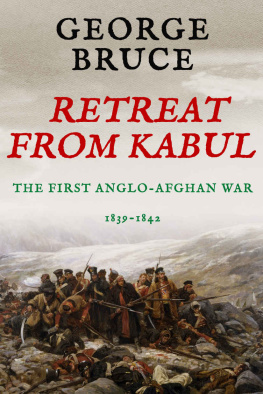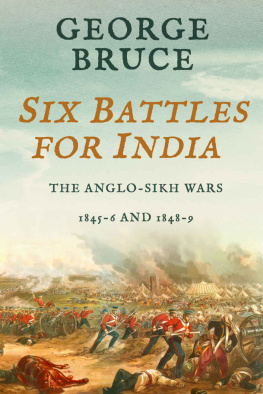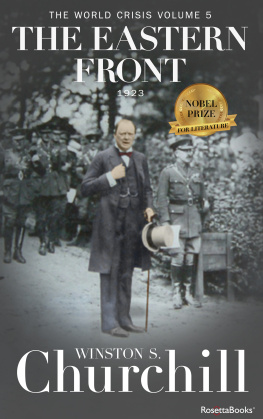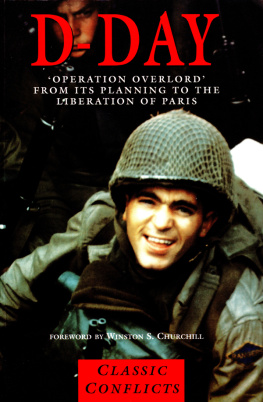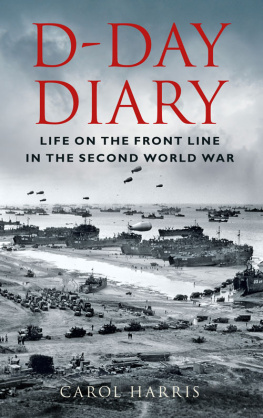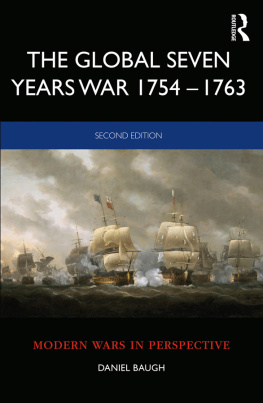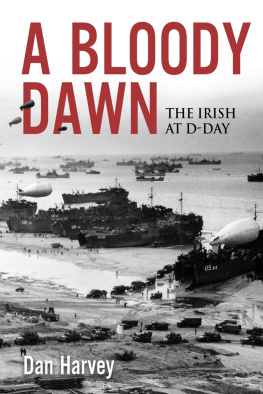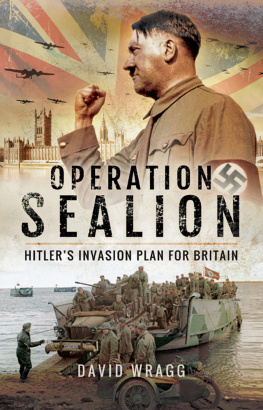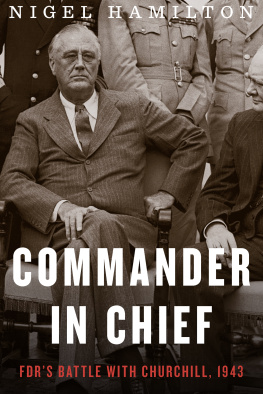SECOND FRONT NOW!
THE ROAD TO D-DAY
GEORGE BRUCE
TABLE OF CONTENTS
The prospect of launching an invasion out of England was little short of appalling. There was no precedent in all history for any such thing on the scale that must of necessity be achieved here.
Overture to Overlord by Lieut-General Sir Frederick Morgan, KCB, Chief of Staff to the Supreme Allied Commander
INTRODUCTION
This book is a history of the military and political background of the major strategic issue of the Second World War. Namely, whether, where and when a second front should be launched in north-west Europe, and the conflicts between the three superpowers, Great Britain, the United States and the USSR that it involved. It is based mainly on the official papers that report verbatim the discussions and arguments between Winston Churchill and his War Cabinet, the Chiefs of Staff and their American counterparts together with Stalins letters on the subject. So that the comment is given as it was spoken at the time I have occasionally restored the first person into these records.
These sources include the files of the War Cabinet, the Prime Ministers Office, the Chiefs of Staff, the British-American Combined Chiefs of Staff in Washington, COSSAC (Chief of Staff to the Supreme Allied Commander) and SHAEF (Supreme Headquarters Allied Expeditionary Force). Use has also been made of Crown Copyright papers dealing with the issue already published in Churchills Second World War and in the British and American official histories. Where a personal comment appears significant I have culled it, with the publishers kind permission, from the diaries or memoirs of the participants in the long debate over this issue. My choice of all the available documents was inevitably limited to those that provided the most revealing material for a history in one volume of this endless subject.
Usually, the War Cabinet and Combined Chiefs of Staff papers are prefixed with the letters CAB, the military planning papers WO or SHAEF and the Prime Ministers office PRM.
1: STALIN, IMPORTUNATE ALLY
The news flashed round the world. Hitler had broken the Nazi-Soviet Non-Aggression Pact, and the Wehrmacht had invaded Soviet Russia at 3 am on 22 June 1941, winning complete tactical surprise along a front of 2,000 miles. In April Winston Churchill had warned Stalin of an impending Nazi attack, but Stalin had shown contempt. Even now as reports flooded into the Kremlin of German armour crossing the frontier in force, of tanks blasting their way through towns and villages, of bombs setting industrial centres aflame, Stalin clung to his conviction that Hitler was loyal. The Soviet Government on its part had faithfully delivered the trainloads of rubber, oil and other strategic materials to help Hitler crush Great Britain, fighting on alone since the fall of France. He ordered Red Army commanders along the frontiers not to be provoked into hostilities, declaring that a few mutinous German generals alone were to blame.
Soon with three German Army Groups advancing spectacularly the truth could no longer be suppressed. Stalin, according to Russian historians, suffered a psychic collapse. He stayed incommunicado until mid-July, taking no part in the conduct of the war and disregarding affairs of state except to order the shooting of a scapegoat, General Dimitri Pavlov, Commander of the Western Army Group, for treason. According to his surviving associates, Pavlov had too faithfully carried out Stalins order that army commanders were not to fall victim to German provocation.
For the people of Great Britain Hitlers about-turn was the most dramatic event of the war. Since the German armies had overrun France and Belgium in the spring of 1940, and the remnants of the BEF had escaped at Dunkirk, Britain had stood alone, recreating her armies, fighting the Luftwaffe for the mastery of her airspace, standing on guard to repel invasion, bombing Germany. These had been months of tension, determination and vigilance. All the time the blunt truth of the overwhelming numerical superiority of the German and Italian forces, soon to be joined by those of Japan, reminded Britain that, except for a miracle and unless the United States joined her, there was little hope.
The miracle had happened. Overnight, Hitlers ally, with her tremendous reserves of manpower, had become Britains ally, if against her will; and an ally that already was bearing the brunt of the Wehrmacht s onslaught, its invasion of Britain now postponed indefinitely. The relief, the wonder, at this incredible event cannot be forgotten nearly 80 years later. Everywhere in the armed forces, factories, offices, the streets it was seen in a visible relaxation of tension, a renewal of hope. Providence had given the nation a fighting ally, and the most unlikely one of all. A bond of sympathy grew for the unfortunate Russian people, feeling the blows of the German sword that their leaders had helped to forge.
To the strategic implications Winston Churchill, Prime Minister and Minister of Defence, was at once alert. He had declared in his famous broadcast that same night of 22 June that although the worst features of Nazism and Communism were indistinguishable, Russias danger was now our danger. Therefore Great Britain would help Russia in every way. And a few days later Anthony Eden, Foreign Secretary, calmed the fears of the small, bearded Soviet Ambassador, Ivan Maisky, who believed that Britain might pull out of the war for the time being and leave it to Russia, while rebuilding her strength. Eden declared that Britain would fight on, and in addition send whatever weapons and supplies she could spare to Russia.
In disregarding, though not forgetting, Soviet Russias hostile acts, and rising above the notion that she could well be left to bear alone the whole weight of Nazi military power, Churchill displayed his characteristic realism. It must have appeared in the Kremlin hardly believable that Britain would now extend a friendly hand.
But since Stalin was temporarily out of action no direct reply to Churchills initiative came out of Russia, except a request to receive a military mission. He therefore decided to establish contact. In his note to Stalin on 7 July he said that the British Government would do everything that time, geography and growing resources allowed. Referring to the Royal Air Forces heavy raids on Germany, he added: Last night nearly 250 heavy bombers were operating. This will go on. Thus we hope to force Hitler to bring back some of his air power to the West and gradually take some of the strain off you.
And moved by the stand the Russian soldiers were trying to make against the Wehrmacht , he told Admiral Sir Dudley Pound, First Sea Lord, in a typically impetuous proposal, that it seemed absolutely necessary to send a small mixed squadron of British ships to the Arctic to form contact and operate with Russian naval forces. Guided, as often, by a mixture of emotion and realism, he continued in this note of 10 July 1941:
The advantage we should reap if the Russians could keep the field and go on with the war at any rate until the winter closes in, is measureless As long as they go on it does not matter so much where the front lies. These people have shown themselves worth backing, and we must make sacrifices and take risks even at inconvenience, which I realise, to maintain their morale
That same day he gave the prim and austere Sir Stafford Cripps, returning as British Ambassador to Moscow, a message for Stalin setting out the terms of an Anglo-Russian agreement. These were mainly a pledge that neither country would make a separate peace, and a promise of mutual aid.


